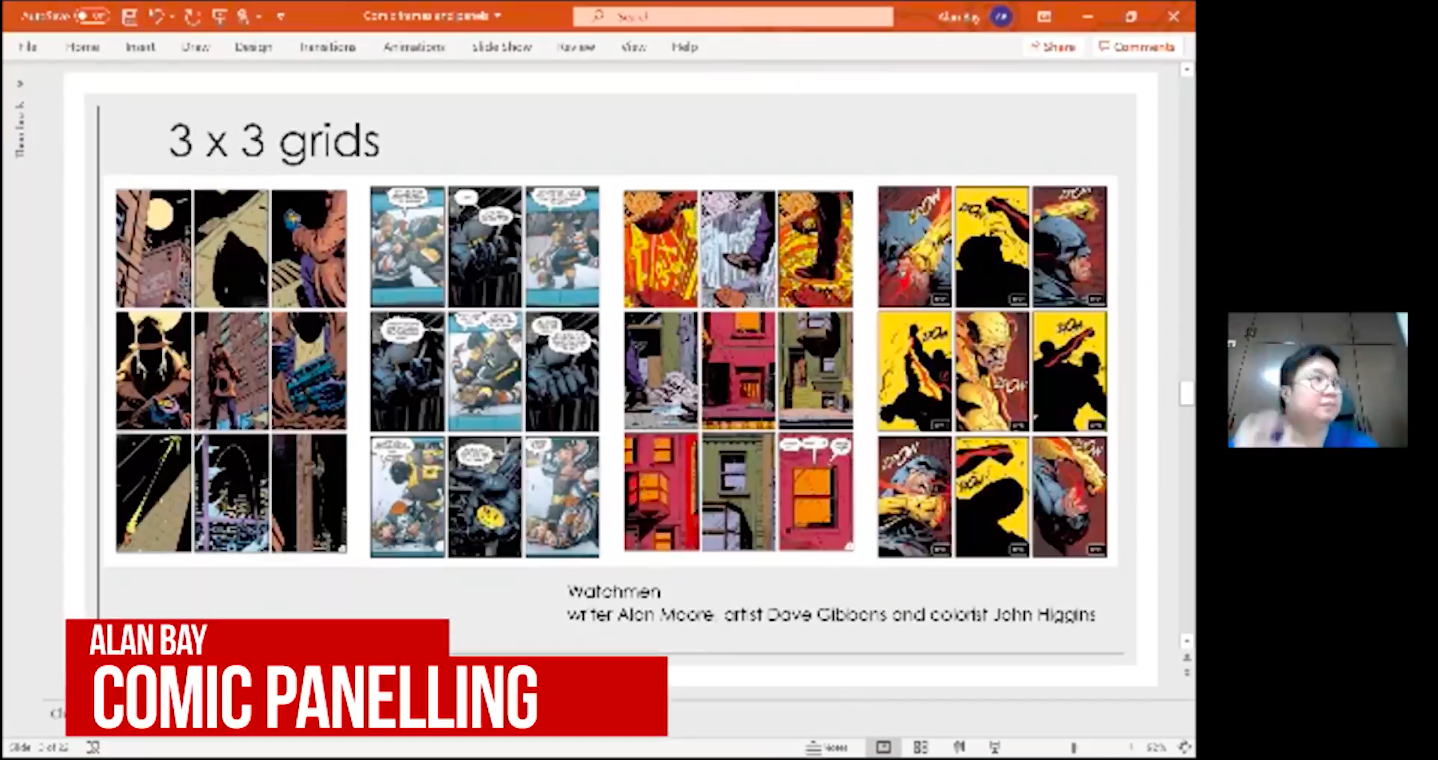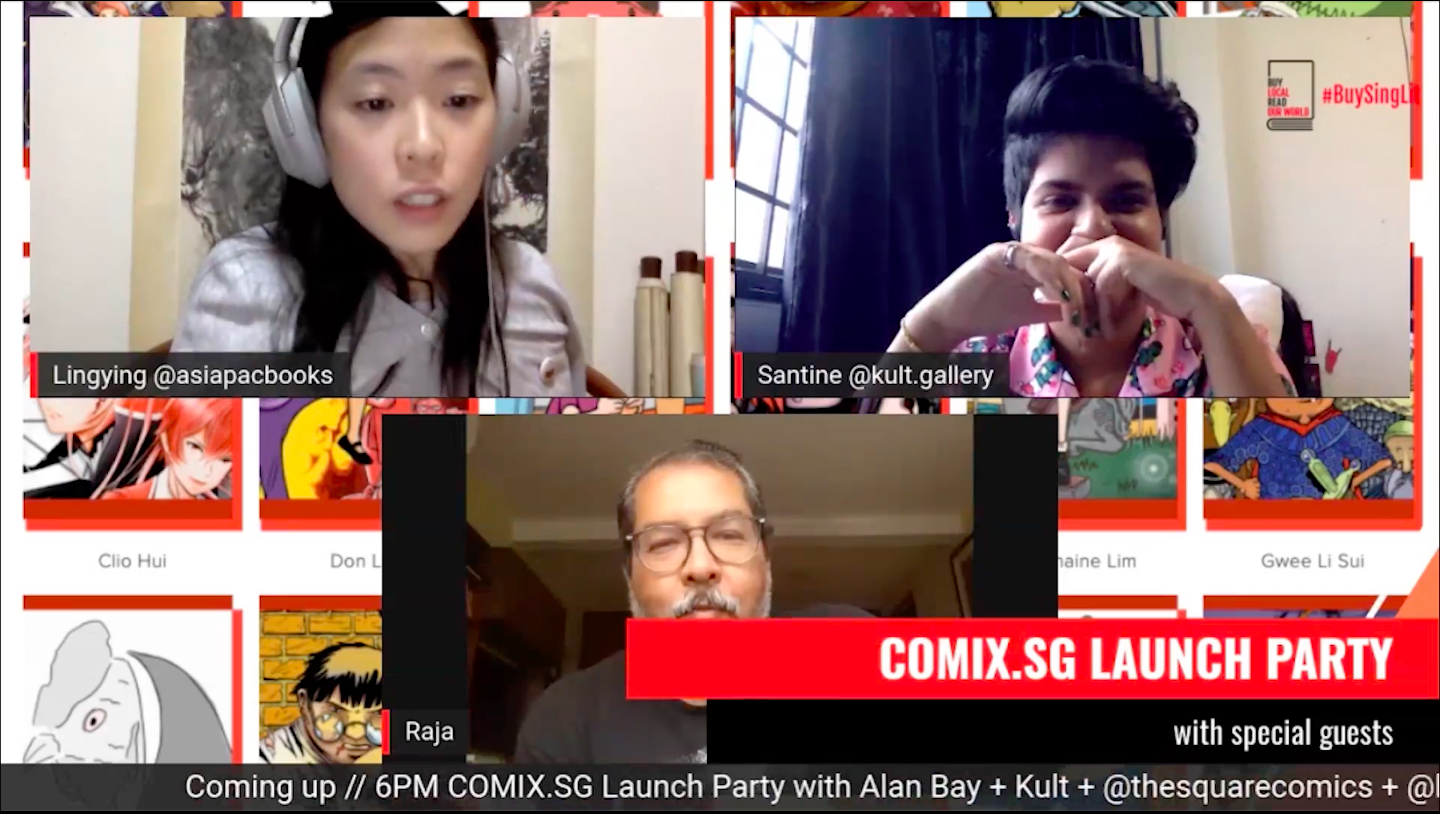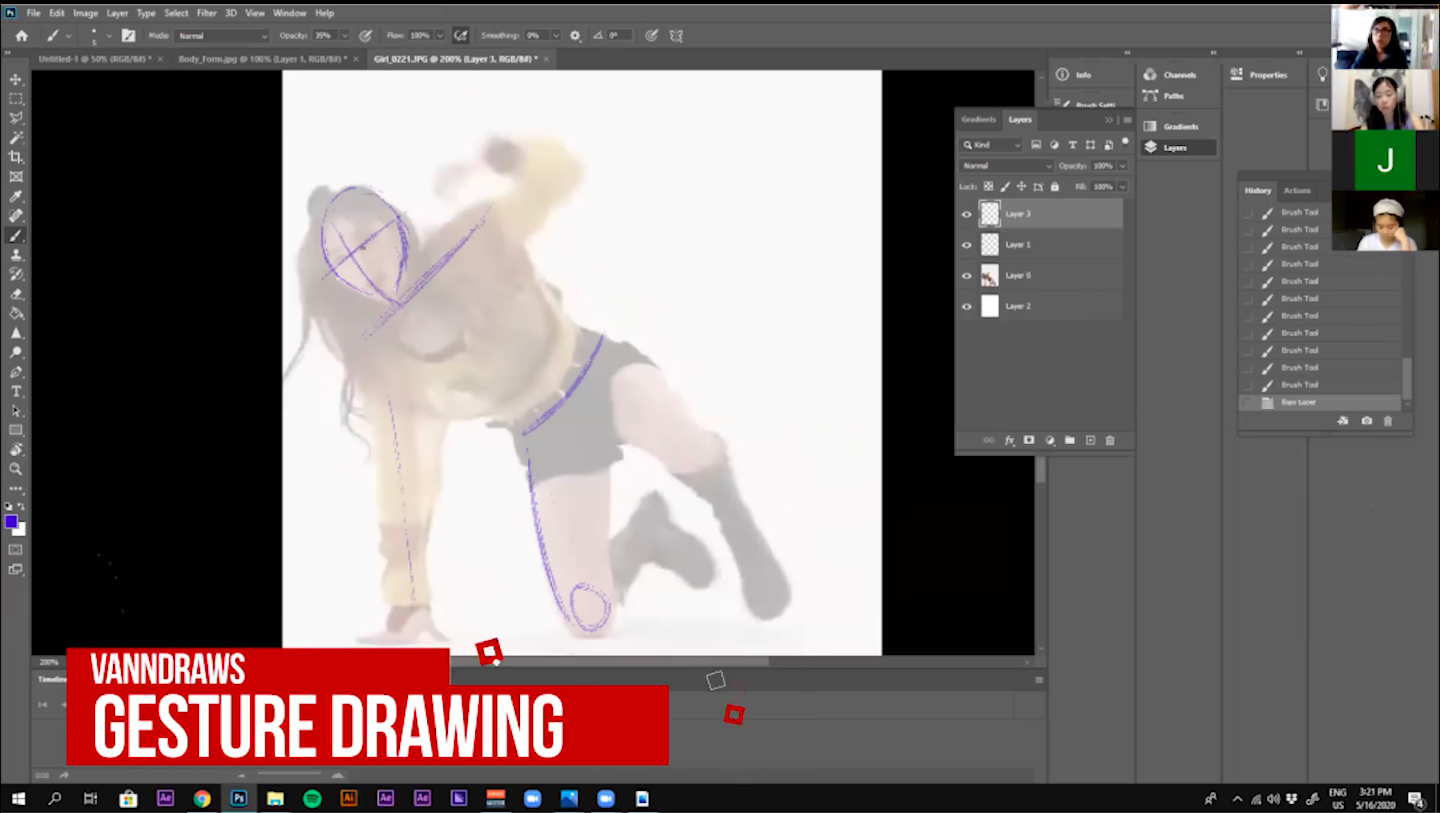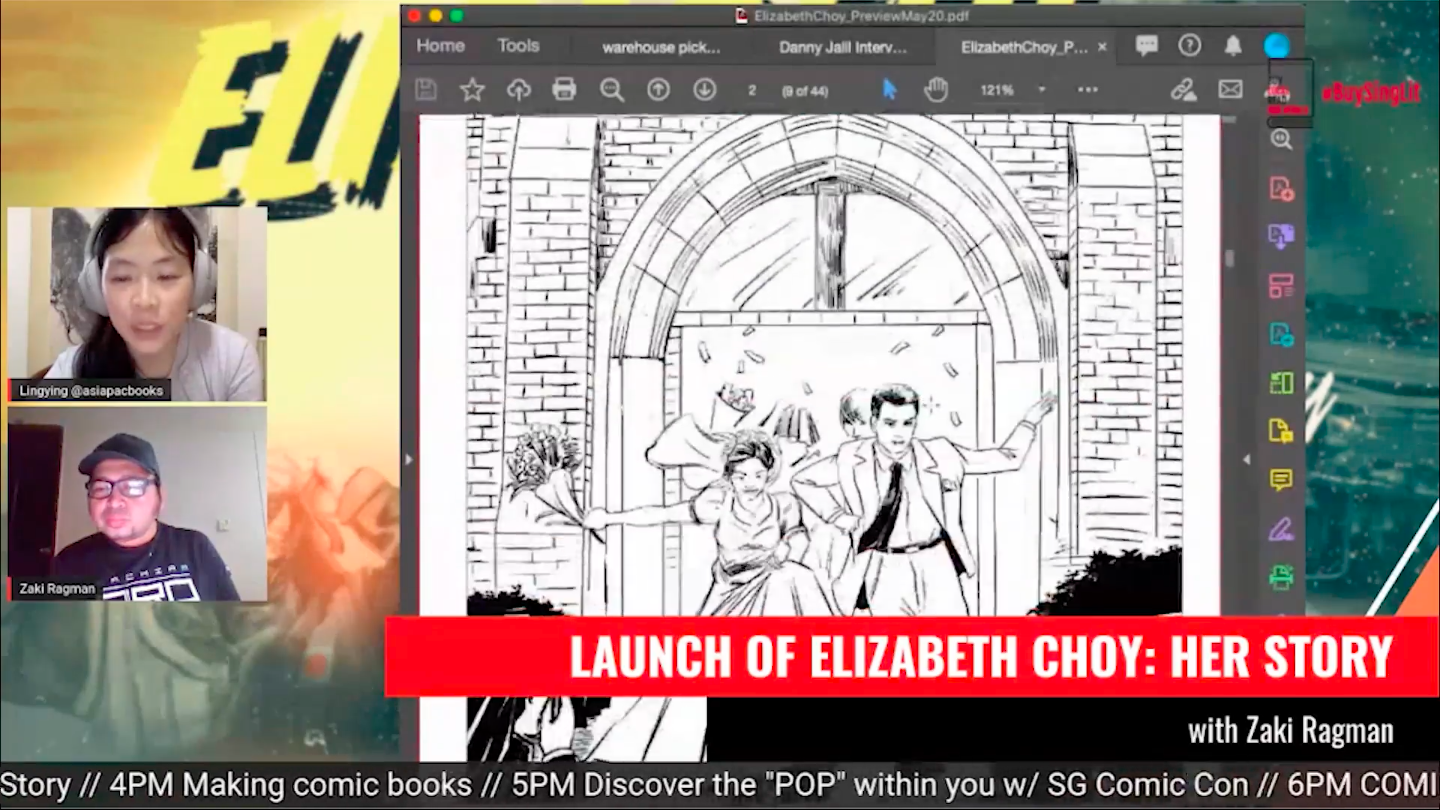The Zoom Boom
/ Article by irie aman
As we wade deeper into Phase 2, more events pop up in my periphery, like satellites blinking just out of reach. Whenever I click on these links, I’m awed by how well-produced they are. The care that event organisers pour into the digital realm cannot be understated. Accessibility, engagement, community: these are all themes I see appear over and over. And with great reason!
Events being moved online have opened up so many possibilities, with new audiences and formats coming forward. But what happens to spaces? Space both reflects and shapes identities: so what happens when all these are brought into the virtual realm? From workshops to book clubs, trivia night to literary festivals, collectives have found themselves creatively working with the boundaries of online space and time.
For poet and community organiser Joshua Ip and his Sing Lit Trivia Night, a pre-existing community meant testing out different tech options for potential future projects on a relatively forgiving audience. Having previously run a “Literary Olympics” years ago, this “game show” consisted of Google Forms quizzes, Mentimeter, and Powerpoint slides- all on Zoom. With the help of Sing Lit Station’s programme manager, Klarissa Schmitt, doing a lot of the back-end work, Ip hosted a trivia night for writing circles. To him, community was made of people and their interactions, so the shift to online events was a return to simpler times. “SingPoWriMo after all started as a digital community. Physical events have become a part of it, but they've always served to augment the digital activity rather than being a prerequisite for it.”
It’s a wonderful sentiment to have, but not one I share. There is a sort-of mourning for haunts like The Substation and The Moon, and as a dink organiser, I’m definitely one of those who’ve been hit the hardest. One of the best things about running dink (previously Destination: INK), an open mic that has found its home in the heart of Bugis (and briefly, Chinatown), has always been its community.
But before Circuit Breaker, I’ve never realised how much the community was embedded in a cosy space on the third floor, and the long stretches of a city late into the night. Not that I couldn’t learn to love my people without being present in Blu Jaz, of course — but home as I knew it was the deep teal of four walls and the embrace of a slightly-grainy couch and the screech of mic feedback. I yearn for a return to that safe haven more than I yearn for face masks to no longer be required. For years, I’ve always felt out of place; when I climb up those colourful stairs, something in me settles, even if just for a while.
Of course I know not everyone feels that way. I “cope” by finding so much joy in seeing new faces. Across the board, collectives report a rise in participation, with newer, more diverse attendees. Spoke & Bird’s latest show gained over 2,200 views on FB Live. For poets, such numbers are the stuff of dreams- even a packed auditorium might not muster such a huge audience. When you consider that their usual offline show at the Merry Lion averaged 30 attendees, you definitely see the lustre of online reach calling to you, even if one misses the camaraderie in that crowd. Online shows don’t just mean more people, but more inclusivity. They now get to reach those who didn’t have the time to commute to a venue, people who couldn’t make it because of their work shifts, a younger crowd even, or shows held in disability-unfriendly venues, and more. Community evolves: space can make a community, but it shouldn’t break them. With everything being made more accessible, this is a trend I can fully get behind.
No Readgrets, a burgeoning book club, tells me their community’s sense of belonging seems to have shifted. From requiring a physical safe space for questioning and learning together, to a different definition of intimacy amongst their readers in online spaces. Their understanding of each other no longer necessitates being physically present; it now comes from the sense of common struggle, where topics they want to discuss are made more palpable. Elly, one of their co-founders, likens it to “[surpassing] time and space barriers… you’re forced to internalize & think deeper about struggles [in the books discussed]” precisely because are all that is left.
Yet not everything is as shiny as it sounds. We’ve heard of Zoom fatigue, of course, and Zoom, for one, only allows a single conversation to occur at a time, with the exception of its chat function. Online facilitation is a round-the-clock duty that can be emotionally draining, where IRL facilitation is much less so. It’s a multitasking nightmare, especially when technical troubleshooting is required. Poet Desmond Kon agrees with me: “Apart from presenting slides, we need to be attentive to all participants, engage with the discourse, provide immediate feedback, include everyone in the discussion, all the while trying to make everyone feel included. There’s also the chat, and its running thread of comments.”
Fortunately for him, The Arts House had a handle on his Write From Home workshops, as did Asiapac Books with their Illustrating Sing Lit workshops. It seems then, that larger organizations with dedicated manpower and resources are better at navigating this smoothly. Smaller, independent groups might struggle, especially when just starting out. It’s why I yearn so badly to return to Blu Jaz. There is a sense of intimacy in dink even online, and this is so necessary for people out there who might not always have a safe space offline.
Yet pouring my heart and soul into a screen, with little “feedback”, makes it hard to keep going. I’m an extrovert, and I draw energy from the people around me! But as Chelsea Curto from Plaidwright tells me, it’s not entirely impossible. It can be awkward watching a gallery of strangers, and the energy might not flow as well as IRL, but online theatre has allowed a different sense of community to develop. The chat function, meant to supplement audience feedback (necessary for any performer), encouraged chatter during the performance with live reactions, funny comments, and emotions bursting forth: “You don’t get that in a live performance, where you’re expected to politely sit there.” The idea that there is a gap (or delay) between a playwright and his audience’s ability to communicate with one another now feels dated, something to leave in the past.
The future, on the other hand, is something to get excited about. Checkpoint Theatre’s Huzir Sulaiman doesn’t see the pandemic as limiting as the rest of us might. For Checkpoint, the pandemic is a perfect opportunity to lean into diversification of practice. Now that a live audience is not possible, they’re embracing the digital space as an extension of multidisciplinarity, something which has been a longstanding interest.
When I ask Huzir which format (online or offline) he prefers, he gently chides me, saying that this is not an “either-or”. Doing both allows you to be a “broad and nuanced artist” since you are “obliged to respond to different sets of demands, different opportunities to reach different sets of people.” For that reason, their newest show, 2 Songs and A Story, couldn’t have come at a better time. Building entire shows around human connection, storytelling, and multimedia, it can’t be clearer that the digital format is not a replacement of physical space, but something entirely its own. Space transforms through practice; space implies transformation.
While I did believe (before conducting these interviews via Google Meets/Zoom) that the limitations of the digital format hampers such a transformation, Asiapac Books’ Lingying Chong has wisdom to share. “We can and should be more creative in the way that we use physical spaces… you never know when another [sic] CB is going to happen again. Physical spaces are also imagined spaces, which are not so different from digital virtual spaces like livestreams. Combining virtual and physical spaces creates many interesting new opportunities. We [have] barely scratched the surface.”
Digital spaces and online communities, long the territory of nerds and introverts, are now pulling everyone else in. Sure, there's irreplaceable electricity in meeting friends and breathing the same air, something we didn’t realise we were taking for granted. But 2020 has allowed us to really build on shared affinities across electronic space, in a way that can be more focused and intentional, if we let it. Where social media and the Internet had different rules before, you’ll find now the ability to shift in and out of communities easier- even to build things that are situational or momentary, like a Raeesah Khan stan group on Facebook, or Circuit Breaker Queer Zine Fest’s Pajama Parties on Instagram Live. Because ~ you contain multitudes ~ with complex interests spanning across various collectives, at different points in your life (or even throughout the day) online spaces are here to stay- and thank god for that.
/ irie aman (they/them) is a creative and community organiser. Currently, they are the Editor-in-chief of the local rebel, and an open mic night organiser at dink, and a member of the writing commune /s@ber. Find them at irieaman.com
EDITED (as of Sep 8): This article previously stated that Spoke & Bird's offline show at the Merry Lion Spoke “averaged 15 attendees” and has been corrected to read that an “offline show at the Merry Lion averaged 30 attendees”.











